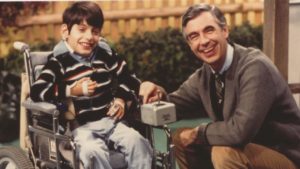As usual, I’m enjoying baseball’s playoffs this year, and not just because my St. Louis Cardinals are in them again. I just love baseball, period. My reasons have a lot to do with sentiment and childhood memories, and I don’t expect everyone to share them. I confess to being annoyed, though, when I hear people who don’t like baseball (but do like some other sports) call it “boring.” Far from it!, I want to say. It’s a thinking-man’s game! Nothing could be more interesting!
That’s a natural reaction for a baseball fan, of course. But in my case, there’s something more than partisanship involved. There’s my sense that the decline of baseball’s popularity over the decades has to do with the public’s growing impatience. People want constant motion and high impact. Basketball and football deliver those far more than baseball does.
I’m conscious of this trend because I’ve seen it in my lifetime: Through most of the time I’ve been on this earth (51 years), people couldn’t get a constant flow of information and stimulation from electronic screens, much less screens they could hold in their hand wherever they went. Live like that every day, and it changes you. But the trend has been going for a longer time than I’ve been around.
C.S. Lewis, for example, saw drawbacks when cars came along. He wasn’t a mindless reactionary about it; he saw that they had their advantages. But he thought they rushed us through life, damaging our ability to experience places and distances at a proper pace. In Surprised by Joy, he wrote:
I number it among my blessings that my father had no car, while yet most of my friends had, and sometimes took me for a drive. This meant that all these distant objects could be visited just enough to clothe them with memories and not impossible desires, while yet they remained ordinarily as inaccessible as the Moon. The deadly power of rushing about wherever I pleased had not been given me. I measure distances by the standard of man, man walking on his two feet, not by the standard of the internal combustion engine. I had not been allowed to deflower the very idea of distance; in return I possessed “infinite riches” in what would have been to motorists “a little room.” The truest and most horrible claim made for modern transport is that it “annihilates space.” It does. It annihilates one of the most glorious gifts we have been given. It is a vile inflation which lowers the value of distance, so that a modern boy travels a hundred miles with less sense of liberation and pilgrimage and adventure than his grandfather got from traveling ten.
That was a foreign perspective to me when I first read it, and I was glad to be exposed to it. It suggested to me just how much I’m in a hurry and how many experiences I’m racing through instead of drinking them in. Years after I read that, I’m afraid I’ve gotten worse: I’m more impatient, more in a hurry now than I was then. I occasionally become aware of that, and it’s a symptom of my condition that, when I do become aware, I tend to chase it off by thinking, I don’t have time to think about that right now.
At the same time, I can see that many other people have the problem worse than I do. It’s easier for me to see their impatience, their short attention span, than it is to see mine. When I do, I take it as a warning that I don’t want to go as far down that road as they have. Once in a while, though, I remind myself that I shouldn’t want to go as far down that road as I have.
How about you? Does any of this resonate with you? Are you too much in a hurry? How often are you aware of it? Do you ever make efforts to slow down and take life at a slower pace — appreciating it instead of racing through it?











